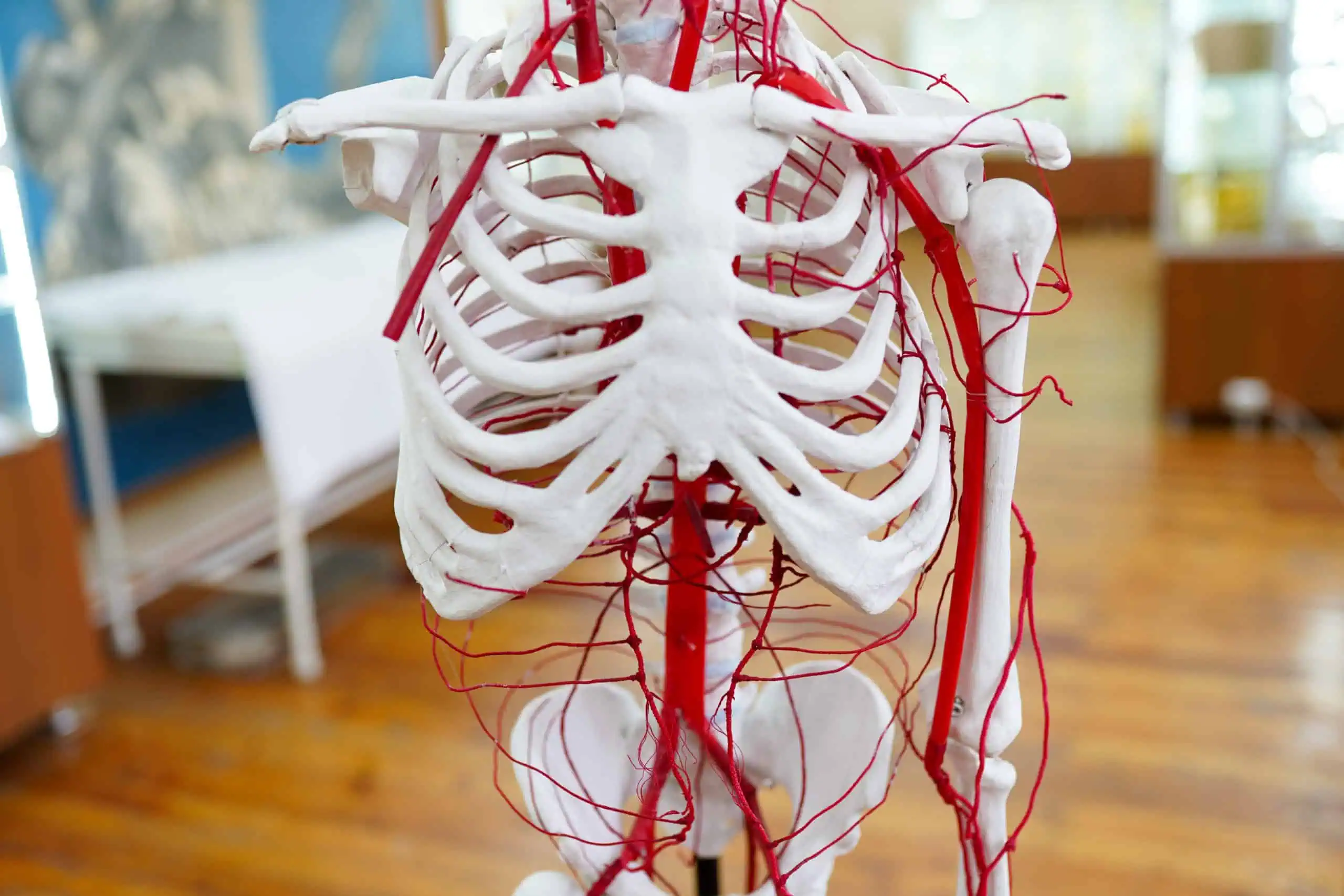On This Page[Hide][Show]
Understaanding Peripheral Arterial Disease
Peripheral artery disease (PAD) is a disease in which plaque builds up in the arteries. Plaque consists of cholesterol, fat, calcium deposits, and other substances in the blood. Over a period of time plaque will start to build up and harden. This causes blood flow to become restricted to your head, limbs, and major organs causing a reduction in oxygen.

Symptoms of Peripheral Arterial Disease
Peripheral arterial disease usually affects the legs first. It can cause weakness or numbness in the legs and sores that will not heal making it hard to continue to work. Pain can increase during periods of stress on the muscles because of the restriction of blood flow.
Symptoms can include but are not limited to:
- Painful cramping in one or both of your hips, thighs, legs, or calf muscles after certain activities;
- Leg numbness or weakness;
- Sores that will not heal properly;
- A change in color due to loss of blood flow; and
- Weak pulse in legs or feet.
Pain from the peripheral arterial disease can range from mild to excruciating. Rest and elevation of the legs can help alleviate pain.
Treatment
Treatment plans for peripheral arterial disease can range from changes in lifestyle choices to major surgery. Treatment can be slow but can help the progression of the disease. If left untreated, you drastically increase your risk of heart attack, stroke, and amputation.
Peripheral Arterial Disease and Long-Term Disability
Peripheral arterial disease is considered a major and debilitating disease. Amputation, heart attack, or a stroke are major risk factors with this disease. It may become difficult to continue to work if you are experiencing these symptoms. Patients who find themselves unable to work because of their peripheral arterial disease may qualify for long-term disability (LTD) benefits.
The insurance company will decide your case based on medical evidence. A conclusive diagnosis and accompanying records which demonstrate your immobility are necessary to support your claim. Your doctor should also outline a treatment plan tailored for you. A list of work-related restrictions linked to your condition, provided by your doctor, will be pivotal. The LTD adjuster will consider how peripheral arterial disease impacts your daily life, particularly its effect on your work capabilities.
Some examples of these are: Needing to stand and move about often to prevent blood clots in your legs and frequent leg elevation caused by chronic pain that causes an interruption in your work duties and responsibilities.
Should your doctor recommend that you refrain from working during your treatment, you might be eligible for long-term disability benefits. The insurance company will then assess your records against their criteria to determine your eligibility.
Definition of Disability
In many LTD policies, you are deemed disabled if: (a) For the first two years, you are unable to execute the duties of your occupation. (b) After the first two years, your condition must prevent you from performing any occupation for which you may reasonable be trained. Every LTD policy is different, so you should review yours to understand the precise disability definition.
Proof of Peripheral Arterial Disease
Merely stating your symptoms won’t secure your long-term disability benefits. Comprehensive medical evidence is vital. This includes medical reports from the healthcare professionals and facilities that treated your peripheral arterial disease.
It’s crucial not to overlook any mental health records relating to your peripheral arterial disease, as the severity of the ailment may necessitate psychological therapy for depression and anxiety. Furnish the insurer with notes from your therapy sessions.
If the insurer believes there’s insufficient evidence, they may request an evaluation by their designated physician to ensure they possess the requisite documentation to decide.
Seek Assistance from a Florida Long-Term Disability Insurance Attorney
Partnering with an experienced disability attorney increases your chances of getting the benefits you deserve for your peripheral arterial disease. Many claims are initially denied, but you have he right to appeal the decision. The Ortiz Law Firm has effectively advocated for disability claimants nationwide. To consult a knowledgeable lawyer about your peripheral arterial disease and its impact on your work capacity, call us at (888) 321-8131. We stand ready to assess your situation and assist you through the appeal process.

